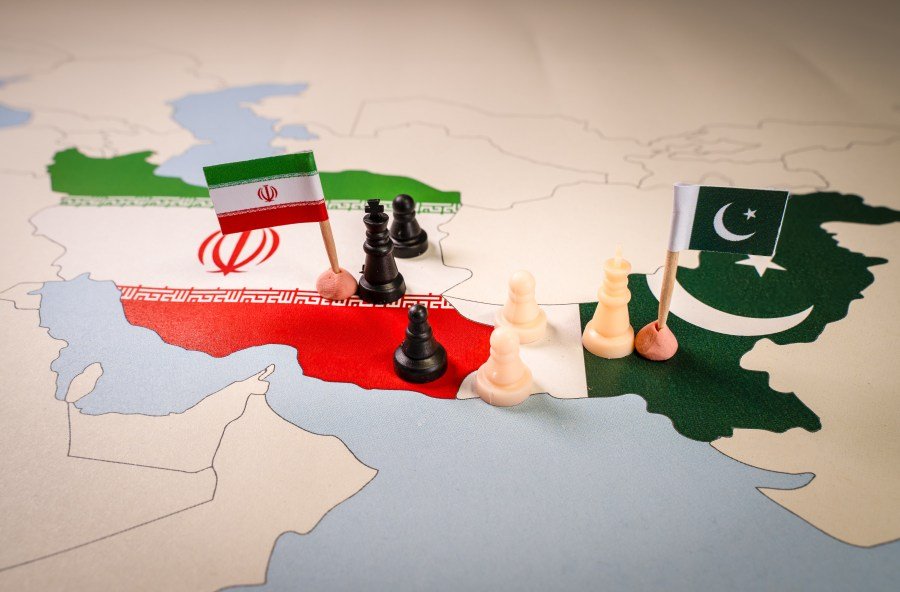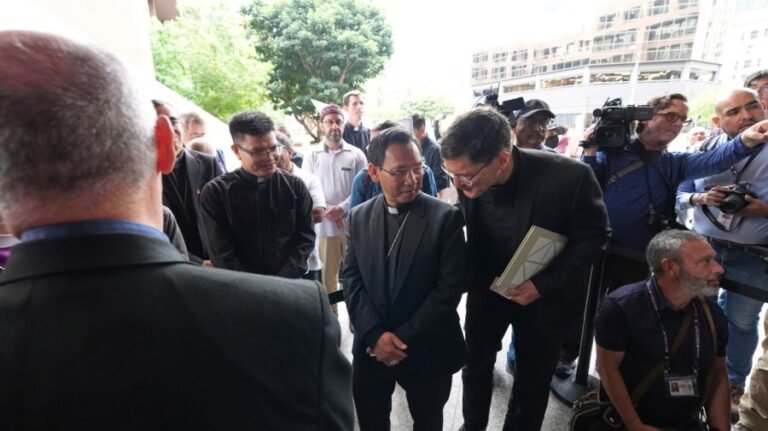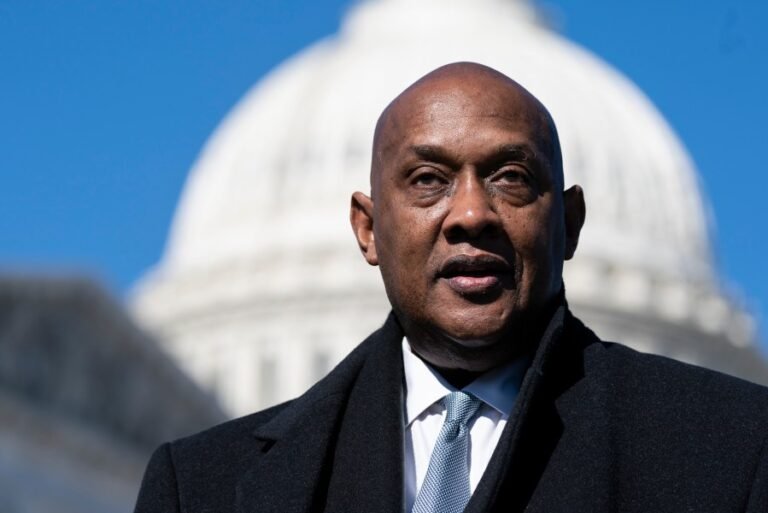
The U.S. and Israel attacked Iran to destroy the country’s nuclear program and perhaps force regime change. Yet just next door to Iran sits Pakistan, a nuclear weapons state, an opponent of Israel and a frenemy of the U.S. How did Pakistan succeed in getting the bomb, whereas Iran’s regime is now in a fight for its life?
First, the Americans want revenge for the humiliation of 1979, when 52 Americans were held for 444 days by the revolutionary government. Iran may have decided the 1980 election, handing the White House to Ronald Reagan — ensuring future presidents would do anything to avoid Jimmy Carter’s fate. America’s internal propagandizing has ensured that few citizens know the cause of Iran’s enmity is the 1953 coup, sponsored by Washington and London, against the freely elected government in Tehran after Iran’s parliament voted to nationalize the British-controlled Anglo-Iranian Oil Company.
Second, Pakistan made itself useful to the U.S. in the insurgency against the Soviet invasion of Afghanistan in 1979, and the U.S. punitive expedition in Afghanistan from 2001 to 2021.
In the 1980s, Pakistan distributed U.S. weapons and money to the anti-Soviet mujahideen; America obliged by overlooking Pakistan’s development of nuclear weapons, though the U.S. stopped its “willful gullibility” in 1990 when President George H.W. Bush was no longer able to certify that Pakistan no longer possessed a nuclear weapon. Many in Pakistan believe America no longer needed them in Afghanistan and so betrayed its long-standing ally, but the real reason may have been the Kashmir crisis that caused Pakistan to raise the enrichment of its uranium to weapons grade, which “removed the last fig leaf.”
After 9/11, Pakistan’s leader, Gen. Pervez Musharraf, provided the U.S. with logistical support, intelligence cooperation and access to military bases. In return, Pakistan received billions in military and economic aid — but never severed its ties with the Taliban or the Haqqani Network. Pakistan hosted ground lines of communication for resupply of U.S. forces in Afghanistan, and made Karachi’s Port Qasim available for military cargo.
U.S. reliance on Pakistan for overland logistics was near-complete; Adm. Mike Mullen, chairman of the U,S. Joint Chiefs of Staff, finally admitted, “The Haqqani network … acts as a veritable arm of Pakistan’s Inter-Services Intelligence Agency.” The U.S. military was prepared to overlook troop deaths in Afghanistan due to Pakistan, but it always highlighted the claim that over 600 American troops in Iraq were killed due to Iran’s actions.
Mullen’s complaint tipped Pakistan’s brass that if you kill Americans, the Pentagon will let it slide if you have something it desperately needs, like access to a battlefield. But perhaps Pakistan has sensed a weakening of American ardor, as its defense minister, Khawaja Muhammad Asif, recently reminded Washington and London when he declared, “Well, we have been doing this dirty work for United States for about three decades, you know, and West, including Britain.”
Pakistan’s “dirty work” didn’t get in the way of its confirmation by Washington as a “Major Non-NATO Ally,” a status it shares with Taiwan and Japan, among others. Pakistan has many deficits in its system of governance, but lack of understanding of the Americans isn’t one of them.
In December 2024, Washington sanctioned four Pakistan entities for “contributing to Pakistan’s ballistic missile program.” But Pakistan’s chief of Army staff, Field Marshal Syed Asim Munir, still visited Washington, D.C., in June 2025 where he attended the parade for the U.S. Army’s 250th birthday, and met President Trump in the Oval Office. (Munir is formerly director general of Pakistan’s Military Intelligence, and then Inter-Services Intelligence, and was likely aware of Osama bin Laden’s accommodation in Abbottabad.)
To smooth his way to Washington, Munir met a delegation from World Liberty Financial, a cryptocurrency firm majority-owned by the Trump family. The delegation included Zachary Witkoff, son of Trump’s negotiator with Iran, Steve Witkoff. Even an experienced operator like Munir must have been walked away from the meeting dazed, thinking, “They’re just like well-connected Pakistani businessmen!”
Iran was hobbled by the (unpublished) fatwa, or religious decree, from Supreme Leader Ali Khamenei that weapons of mass destruction — particularly nuclear weapons — were forbidden under Islamic law. (Khamenei’s repudiation of WMD may be because of Iraq’s use of chemical weapons in the Iran–Iraq war from 1980 to 1988.) Pakistan, led by a cohesive military officer class that single-mindedly seeks deterrence against India, is under no such religious restriction because its military isn’t answerable to clerics.
Iran is also limited by the legacy of the Shah’s White Revolution, affecting schools, hospitals and public health, irrigation, urbanization and transport. In Iran, the leaders, no matter how focused on financially supporting their allies in Syria, Palestine and Lebanon, and on the country’s nuclear program, still had to meet public demands for services. Pakistan, on the other hand, has always suffered from sub-par infrastructure and public services and only invests about 1 percent of GDP in public infrastructure, so the country’s leaders benefit from a population that doesn’t know a better situation. Pakistan’s former prime minister, Zulfikar Ali Bhutto, declared, “we will eat leaves and grass, even go hungry” to get a nuclear bomb — and they did.
Pakistan supported Iran in its war with Israel and may have transferred missiles to the Islamic Republic. The war may push Iran and Pakistan closer together, and they can influence significant real estate: the east shoreline of the Persian Gulf, the Strait of Hormuz and the Gulf of Oman. Then there’s the Trans-Afghan Corridor from Central Asia to Pakistan, the International North–South Transport Corridor from India to Europe, and the China–Iran railroad that crosses four Central Asia republics.
Former U.S. national security adviser Zbigniew Brzezinski warned of a coalition between Russia, China and Iran as a geostrategic nightmare for the U.S. He described this as a potential “antihegemonic” alliance, but he thought such a coalition was unlikely — unless the U.S. antagonized all three simultaneously, which America has done, with Pakistan as a potential bonus member.
James Durso, a regular commentator on foreign policy and national security matters, served in the U.S. Navy for 20 years and has worked in Kuwait, Saudi Arabia, and Iraq.


